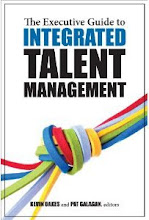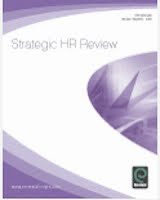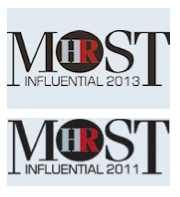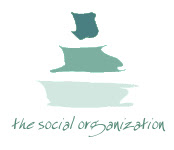Looking through the slides of the sessions that I missed at HRPA 2015 one of the most interesting that I missed was one on HR professionalism. It suggests that:
'Interestingly,‘professionalism’comesupfairly frequently in HR but there is actually very little that has been written about what ‘professionalism’ means for HR professionals.
We can take‘professionalism’to mean the set of values, attitudes, and behaviours that are expected of professionals.'
I think this is a really interesting idea, and a potentially important one. I’d also prefer to see standards focused on our professional behaviour than on the technical aspects of doing HR. The opportunity but also the challenge in doing this is professional behaviours gets to the heart of what it means to be in HR - eg are we about the business of HR being business, or making the business of business into HR. Dave Ulrich’s outside in perspective suggests the former but I think it’s wrong. So do you, apparently.
This is based on one of the other articles in People Management which I found interesting recently which was this one on making friends with the Finance Director (they did let me comment on this.)
And particularly these survey findings:
'In the 2013 State of Talent Managers Report, conducted by the US organisation New Talent Management Network, 77 per cent of respondents said a primary reason they got into HR was to “help people grow and develop”, but only 58 per cent said they joined the profession to “help my company maximise its profitability”.'
I doubt Mark Efron will not have been impressed by these findings but I am. Helping people grow and development is the art of HR, the heart of our profession and this is this is what we need to develop and spread.
It's why I still think Peter Cheese at the CIPD has it wrong when he notes:
' “Part of the problem is we don’t have a business language of HR,” said Cheese, pointing out that even regularly used terms, such as headcount, have no common definition.
“The business language is principally a language of numbers so this is a really important space to be working in,” he added.'
We need to develop a new language of business focused on people, not to try to fit people into the way things are done now. It's this I hope the reporter was referring to when they note:
'I agree that it’s vitally important for HR to make friends with finance, as the alternative seems to be letting finance take over the boardroom. As any good HR professional knows, one of a business’s most important assets is its people. And people can’t be simplified down to finance’s language of facts and figures.'
It's interesting to see tonight's #Tchat returning to Ram Charan's intervention last year as well (see my comments here.) To me, if all we do is see ourselves as in the business of business, and use the language of current business i.e. Finance, then we can't complain when we do get taken over by Finance as what's the point in us. We need to create a new language of people and ensure the business is in the business of HR. Then we've got something special to contribute and our businesses will be in a much better state as well.
It's this that needs to be the basis for increasing moves towards confirming our professionalism.
- Consulting Research Speaking Training Writing
- Strategy - Talent - Engagement - Change and OD
- Contact me to create more value for your business
- jon [dot] ingham [at] strategic [dash] hcm [dot] com






























0 comments:
Post a Comment
Please add your comment here (email me your comments if you have trouble and I will put them up for you)